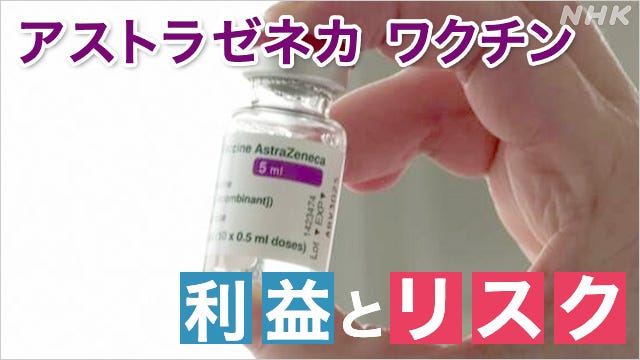End of an affair: AstraZeneca gets no love in Japan
Although by early May 2021 both Denmark and Norway had decided to stop using AstraZeneca’s adenovirus vector vaccine (aka, the clot shot) due to all those “rare” blood clots it causes, Japan bought 120 million doses and approved it for people over 40. Most of the shots were contracted to be produced domestically by Daichii Sankyo.
AztraZeneca vaccine
Benefit and Risk
Now to be fair to the Japanese, they weren’t particularly enthusiastic about blocking up their own arteries, so Japan donated 1.24 million doses to Taiwan…
…where they soon started taking effect.
So the Japanese donated even more doses to other countries…
…where they continued to work their magic.
But even then, since only 110,000 doses had been used domestically, the Japanese were still left with loads of shots they didn’t know what to do with.
Mass-disposal of AstraZeneca Vaccine? The majority of ordered shots have no way to be used
According to material obtained by the Asahi Shimbun, most of the 120 doses were produced domestically in 2021, and the doses in storage are one by one awaiting their 6-month expiry dates. There is a possibly of mass-disposal (of the doses).
Part of the stock appears to have passed its expiry date. Management of the Ministry of Health Labour and Welfare says “They were bought with hard-earned taxes, but when the expiry date comes, the only thing is to throw them away.”
Er, the MHLW actually extended the expiry dates of the Pfizer and Moderna jabs from 6 to 9 months, so apparently there is another way.
In the end, Japan decided to cancel a third of the original order after distributing only 200,000 domestically and 44 million overseas.
So how much will the Japanese taxpayer be coughing up to cover the cancellation fee?
However, regarding the cancellation fee, [MHLW Health Bureau Chief Yasuyuki Sahara said] “there is a non-disclosure agreement” and didn’t clarify it.
Makes you wonder what else the NDA covers, doesn’t it?















